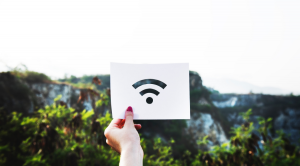How to protect your mobile devices, Mac from cyber threats
Macs are famous for their high security, but that doesn't mean they're completely invulnerable. By following best practices and using built-in tools, you can significantly increase the security of your Mac.
Here are the steps you need to take to protect your Mac, ensuring your data is safe and your system is protected from cyber threats.
Why do you need to secure your Mac?
Threats increase
In fact, recent data highlights the need for increased vigilance for Mac users. According to Malwarebytes' 2023 State of Malware report, 11% of all Mac detections were different variants of malware, including ransomware, trojans, ransomware, worms, and malware. virus. These data prove that Macs are not immune to cyber threats.
Outstanding incident
Major security incidents further highlight the vulnerabilities facing Macs. In early 2023, Silver Sparrow malware was detected on nearly 30,000 Mac devices worldwide. What's worrying about this malware is its advancedness and its ability to target the new M1 chip architecture.
Another case involved Atomic Stealer (AMOS) malware, discovered in September 2023. This malware stole passwords, browser data, cookies, files, and cryptocurrency from Mac users. Delivered via "malvertising", it tricks users into downloading malware by imitating legitimate websites.
Cybercriminals are constantly adapting and finding new vulnerabilities to exploit. As more individuals and organizations use Mac devices, the incentive for cybercriminals to compromise this ecosystem is increasing.
Key reasons to secure your Mac
Mac security isn't just about protecting your data, it's also about ensuring the integrity and reliability of your device.
Protect your online privacy: Macs store valuable information like financial records, personal documents, work files, and logins, making it a prime target for attackers .
Prevent data breaches, fraud, and identity theft: Hackers can use stolen information for identity theft, financial fraud, or other illegal activities.
Maintain your reputation: Protect your professional reputation and trustworthiness by ensuring sensitive information and communications are secure.
Malware and spyware prevention: Malware can infect your Mac, disrupt performance, steal data, and track your activity. Spyware can silently monitor online activity, recording login information, browsing history, and other sensitive information.
Mitigate ransomware threats: Ransomware will hold your files for ransom, rendering them inaccessible and causing significant disruption and financial loss.
Protect network integrity: If hackers gain access to your Mac, they can use it as a springboard to access other devices on your network. This could compromise your entire home network or company's internal systems, leading to a broader security breach.
Prevent botnet participation: Hackers can hijack your Mac's processing power and internet connection to become part of a botnet—a network of compromised devices used to launch large-scale cyber attacks. Being part of a botnet can make you an unwitting accomplice in cybercrimes and slow down your Mac.
Ensuring peace of mind: By protecting your digital assets and online presence, you can rest easy knowing you're protected from cyber threats.
Easy ways to secure your Mac
1. Keep your Mac and installed software up to date
Apple regularly releases updates for macOS, which play an important role in protecting your computer against security threats by:
Patch known security vulnerabilities that hackers could exploit to gain unauthorized access or steal your data.
Introducing new security features to defend against modern attack techniques, such as enhanced malware detection and tighter access controls.
Fix software errors and problems.
Update apps on your Mac to make sure they're secure and working optimally.
Additionally, applications often release updates to address specific vulnerabilities. You can find these updates in the app itself or through the App Store.
2. Use strong passwords and two-factor authentication (2FA)
Create complex and unique passwords for each of your accounts. Use a password manager like VPN RICE to help create and securely store strong passwords for all your accounts. This way, you only need to remember a single "master password," and the password manager will autofill your login information on websites, making your life easier and safer.
Additionally, enable two-factor authentication (2FA) whenever possible. 2FA adds an additional layer of security, greatly enhancing protection against unauthorized access. Avoid using text message-based 2FA (because of the risk of SIM swapping attacks) and instead use app-based 2FA, such as Google Authenticator or Authy.
3. Download with caution
Downloading carefully is vital to protecting your Mac. Free software or downloads from untrustworthy websites may contain malware, designed to steal your data, install ransomware, or harm your system. Even seemingly harmless applications can contain hidden vulnerabilities that hackers can exploit.
4. Only share what is necessary
Avoid enabling file sharing for local files unless absolutely necessary. When sharing files, designate specific users who can access them instead of granting access to everyone on your network by default.
Control the level of access granted—consider whether read-only access is sufficient, or whether users need permissions to edit and modify files. Choose the most restrictive permission level that meets your requirements. Once you're done sharing files or services, remember to turn them off immediately
5. Use a trustworthy VPN
A VPN encrypts your internet traffic, creating a secure tunnel between your Mac and the internet. RICE VPN, rated the best VPN for macOS, prioritizes speed along with security and uses strong encryption standards like AES 256-bit encryption. This scrambles your data into an unreadable code, making it difficult for even the most determined hackers to crack.
Additionally, RICE VPN masks your IP address, making it difficult for ISPs, websites, and other online services to track your browsing activity and location.
6. Create a separate account for daily use
Setting up a separate standard user account increases the security of your Mac by adding an extra layer of defense against cyberattacks. If hackers gain access to your Mac, the amount of damage they can cause will be limited depending on the type of account they compromise. Standard user accounts limit the ability of hackers to modify system settings or install malware, helping to minimize the risk of harm.
This method ensures that sensitive files, personal information, and system settings are protected within their designated user accounts. It also prevents unauthorized modifications to critical system configurations, as standard user accounts typically have limited privileges compared to administrative accounts.
7. Enable your firewall
macOS has a built-in firewall to protect your Mac from unauthorized network access and denial of service attacks.
8. Back up data regularly
Regular data backup is an indispensable safeguard, helping to minimize the impact of cyber attacks, hardware failures, accidental deletions, and natural disasters.
In the event of a ransomware attack, where hackers encrypt your files and demand payment for decryption, having a recent backup will allow you to restore your data without paying ransom.
Even with the strongest security measures, vulnerabilities can still be exploited. Backups provide clean, uninfected copies of data to recover from attacks, minimizing downtime and data loss.










